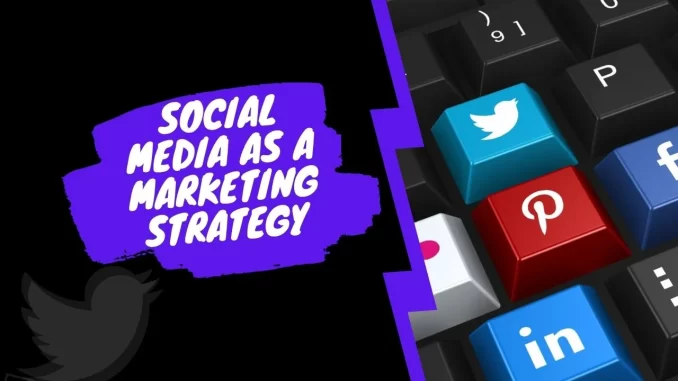When looking for social enterprise ideas, there are several approaches you may use. One of the greatest ways to be motivated for what you want to develop is to see instances of social business in action.
Unlike traditional company ideas, social enterprise ideas usually stem from a desire to address a social need, similar to how many non-profit and charitable organizations get their start.
What is Social Entrepreneurship?
Social Entrepreneurship is a business model which seeks to alleviate social problems while also delivering products or services. Social businesses also increase competitiveness and offer a new aspect to the business world by developing and engaging with a new socially conscious business and consumer community. In a world where sustainability is becoming more important and people’s attitudes are changing, these social enterprise models and concepts provide consumers and company owners with a new choice.
The social entrepreneurship movement continues to gain momentum as the idea of combining commercial acumen and creativity to create sustainable social change expands, coupled with an increasing number of compelling instances of good change emerging across the globe.
Who is a Social Entrepreneur?
In a nutshell, social entrepreneurs are business people who utilize their companies to help others. These philanthropists aren’t only confined to the public sector; they’re also becoming a larger part of the business sector. In addition to making a profit, and maybe even more significantly, their enterprises respond to societal concerns or needs they observe in the world.
What is the difference between social enterprise and a business?
The difference between a social enterprise and a traditional business is really the entrepreneur’s motive. A typical entrepreneur’s primary motive is almost always a desire to generate money, but a social entrepreneur is motivated first and foremost by a desire to address a social problem. Setting up a business or employing market principles (i.e. selling goods or services) is utilized as a tool to address the social or environmental issues they are attempting to address.
5 Social Enterprise Examples
1. Medical Uniforms for Those In Need by FIGS
Scrubs cut hospital-acquired infection rates by 66%. A set of scrubs is provided to a healthcare practitioner in need for every set sold. Over 75,000 units have been delivered in 26 countries across the world to date by FIGS
2. Transformative Power of Play by One World Football Project
Every ball purchased will result in the donation of a second ball to organizations working with kids in needy regions across the world. This will bring the transformational power of play to millions of youngsters who desperately need it. Over 45 million lives have been changed as a result of the One World Football Project.
3. Glasses for the Needy by Warby Parker
A decent pair of glasses will boost productivity by 35% and improve income by 20%. Warby Parker has already given away over a million pairs of spectacles to those in need. These non-profits do provide training to men and women in developing countries to support basic eye exams and sell glasses at a cheap cost.
4. Buy a Book, Plant a Tree by BARON FIG
Baron Fig is a manufacturer of high-quality notebooks for creative professionals and amateurs. Because they are aware of the environmental impact of paper manufacture, they have pledged to plant a tree for every notebook sold. So far, they have planted 52,866 trees in more than 30 nations.
5. Buy While Contributing by Helpfreely
Helpfreely is a comprehensive internet network that enables individuals to generate funds while shopping. Its mission is to assist non-profits while also empowering people to embrace social good. You pay the regular price for the goods you desire, with a portion of the money going to the charity of your choosing.
So without wasting time, Let’s have a look at the Top 10 Outstanding Social Enterprise Ideas!
Top 11 social enterprise ideas Example
1. Social Supermarket
(Fee-for-service business model.) Community Shop (as an example) – Create a food market that offers food at a reduced price to low-income areas. Food is given (or bought very inexpensively) from food suppliers and other supermarkets that are unable to sell it due to several factors including approaching expiration dates, damaged cans, and product mislabeling.
2. Used Textbooks for Social Change
(Cross-compensation and independent support are two business models.) Textbooks for Change, for example) – Collect used textbooks with student groups/clubs after each semester. Used textbooks are donated by students. Some textbooks are resold to students in the college or university where they were collected, while others are given to students in need at underfunded colleges throughout the globe. Any leftover money is used to support social programs in developing communities. Profits are divided between student groups/clubs, program administrative expenses, and any remaining funds are used to support social programs in developing countries.
3. Socially Conscious Marketplace on the Internet
(Examples: ArtZoco and eBatuta) (Business Model: Market Connector) – Build a platform that makes it simple for underserved craftsmen to market their wares to the rest of the world. Artisans can either manage their online store directly through the platform, or the platform can simply act as a listing service that connects artisans with buyers in person. Listing fees are charged directly to the artist, a commission on items sold, or a premium fee is built-in as a premium cost to the consumer. Profits may be used toward social programs that directly benefit artisan communities.
4. Sustainable Water
(Fee-for-service business model.) Water Health International (as an example) – Using off-the-shelf materials, construct tiny water purifying stations in developing-country communities. Initial funding for construction may come from conventional charity sources or debt/equity finance; communities can be partial owners (or full owners, if using a cooperative business model). The sale of purified water to its beneficiaries covers the ongoing expenses of maintaining and staffing the water station, but at near break-even levels, so the beneficiaries pay practically nothing.
5. Microfinance
(Market Connector is the business model.) Kiva (as an example) – Create a platform enabling people and organizations to lend money directly to entrepreneurs in poor countries who would otherwise be unable to get financing. To support the operating expenses, charge a modest fee.
6. Crowdfunding on the Internet
(Market Connector is the business model.) Start with a good example) – Create a platform enabling social entrepreneurs to connect with potential investors. Lenders accept a promise of something in the future in exchange for ‘donating’ a small amount of money to the Social Entrepreneur’s initiative now, similar to the Micro Lending platform. Charge a modest charge to support the platform’s operating expenses.
7. Baking/Cooking for a Social Cause
(Employment and Skills Training are the business models) For instance, Edgar and Joe’s – Open a bakery/restaurant or similar food-related business that focuses on helping underemployed people, such as at-risk adolescents or former drug users, gain job skills. Wages, training, and social improvement initiatives for the staff-beneficiaries are funded by the profits from food and beverage sales.
8. For the Developing World, Efficient Wooden Stoves
(Cross-Compensation is a business model.) Bio Lite (as an example) – As a consequence of inhaling wood smoke daily, millions of women in poor nations suffer from cardiac illnesses. To address this issue, create a more efficient stove. Sell the stoves at or over the market price to those who can afford them, and use the proceeds to partially subsidize the price for those who can’t.
9. Information Product with a Difference
(Cross-Compensation is a business model.) Information Blanket (as an example) – Make a baby blanket that includes information on how to care for a baby, such as when to immunize, how large a baby should be at a certain age, and how frequently to feed the baby. The areas with the least amount of infant education are also the ones with the lowest income. As a result, these blankets might be handed away for free to new moms in low-income regions while being marketed to new mothers in higher-income ones. The proceeds from the sales would be used to provide blankets and education to new moms in low-income regions.
10. Micro-Power Production
(Fee-for-service business model.) Husk Power (for example) – In the underdeveloped world, provide micro-electric solutions for distant applications. You could accomplish this in two ways: you could make a stand-alone power system out of old, rechargeable batteries and use it to power classrooms. You may even build a small power plant using biomass generated by off-grid villagers’ people, plants, and animals. These systems are inexpensive to develop and deploy, and they may be paid for on a per-use basis. This concept may also work nicely as a cooperative.
11. Socially Conscious Consumer Electronics
(Fee for Service and Market Intermediary are the two business models.) Fair Phone is an example.) Build a new type of consumer electronic device, one that is made with conflict-free materials, pays fair wages to its workers, has a fair and transparent price for the end-user, and doesn’t engage in unfair consumer practices (like locking smartphones or creating proprietary software/hardware interfaces).
Read this: Top 10 Most Successful Entrepreneurs that Shocked the World
In Conclusion
When looking for social business ideas, there are several approaches you may use. One of the greatest ways to be motivated for what you want to develop is to see instances of social business in action. Social enterprise ideas usually stem from a desire to address a social need.
Create a platform enabling people and organizations to lend money directly to entrepreneurs in poor countries.
However, you can sell stoves to those who can afford them and partially subsidize the price for those who cannot afford them. In under-developed countries, you can provide micro-electric solutions for distant applications or build a small power plant using biomass.
Do you feel a Social Enterprise Ideas is lost on the list? Feel free to drop it in the comment session.
Photo by charity from pngtree










Comments are closed.